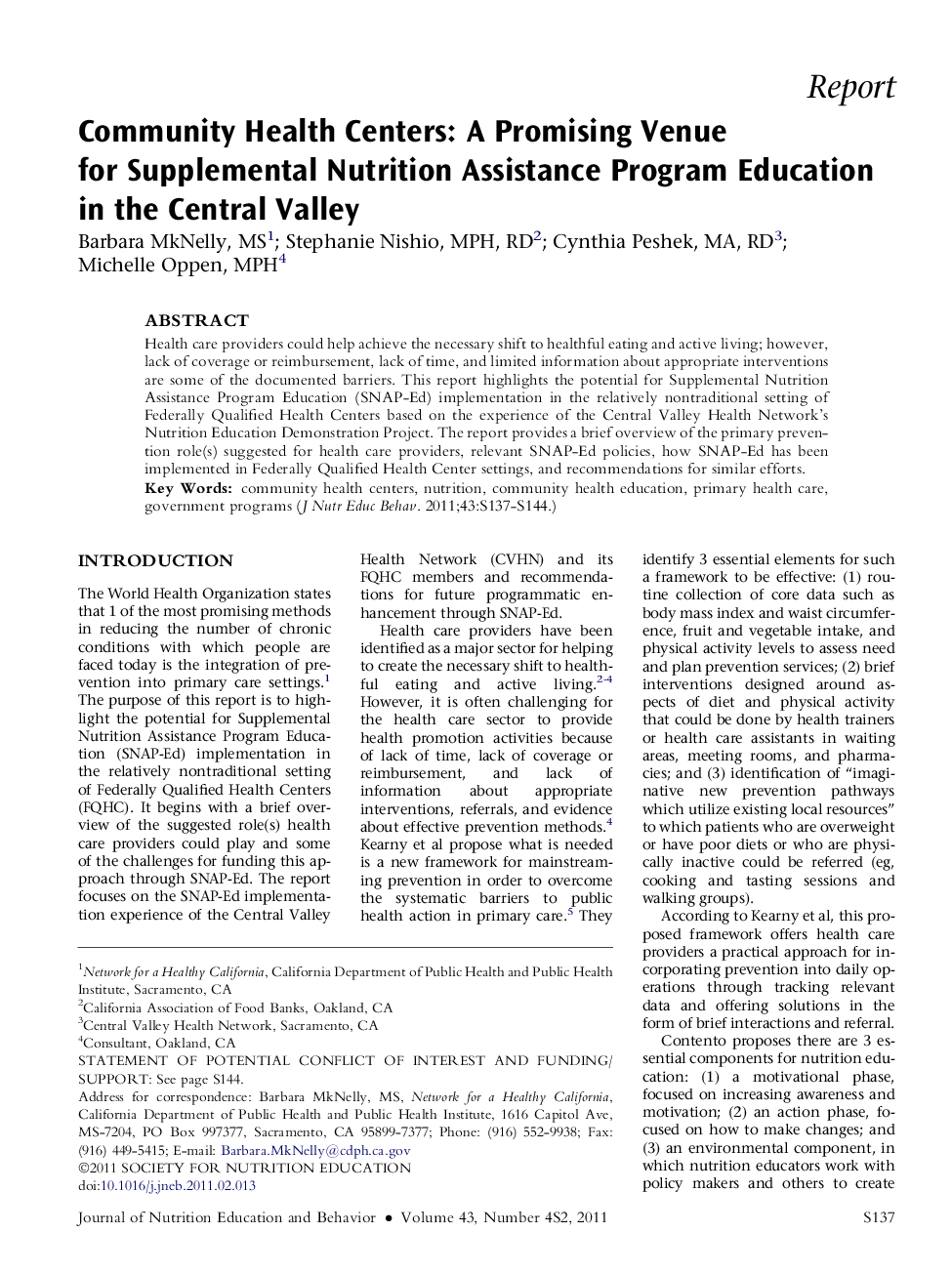| Article ID | Journal | Published Year | Pages | File Type |
|---|---|---|---|---|
| 362409 | Journal of Nutrition Education and Behavior | 2011 | 8 Pages |
Health care providers could help achieve the necessary shift to healthful eating and active living; however, lack of coverage or reimbursement, lack of time, and limited information about appropriate interventions are some of the documented barriers. This report highlights the potential for Supplemental Nutrition Assistance Program Education (SNAP-Ed) implementation in the relatively nontraditional setting of Federally Qualified Health Centers based on the experience of the Central Valley Health Network’s Nutrition Education Demonstration Project. The report provides a brief overview of the primary prevention role(s) suggested for health care providers, relevant SNAP-Ed policies, how SNAP-Ed has been implemented in Federally Qualified Health Center settings, and recommendations for similar efforts.
